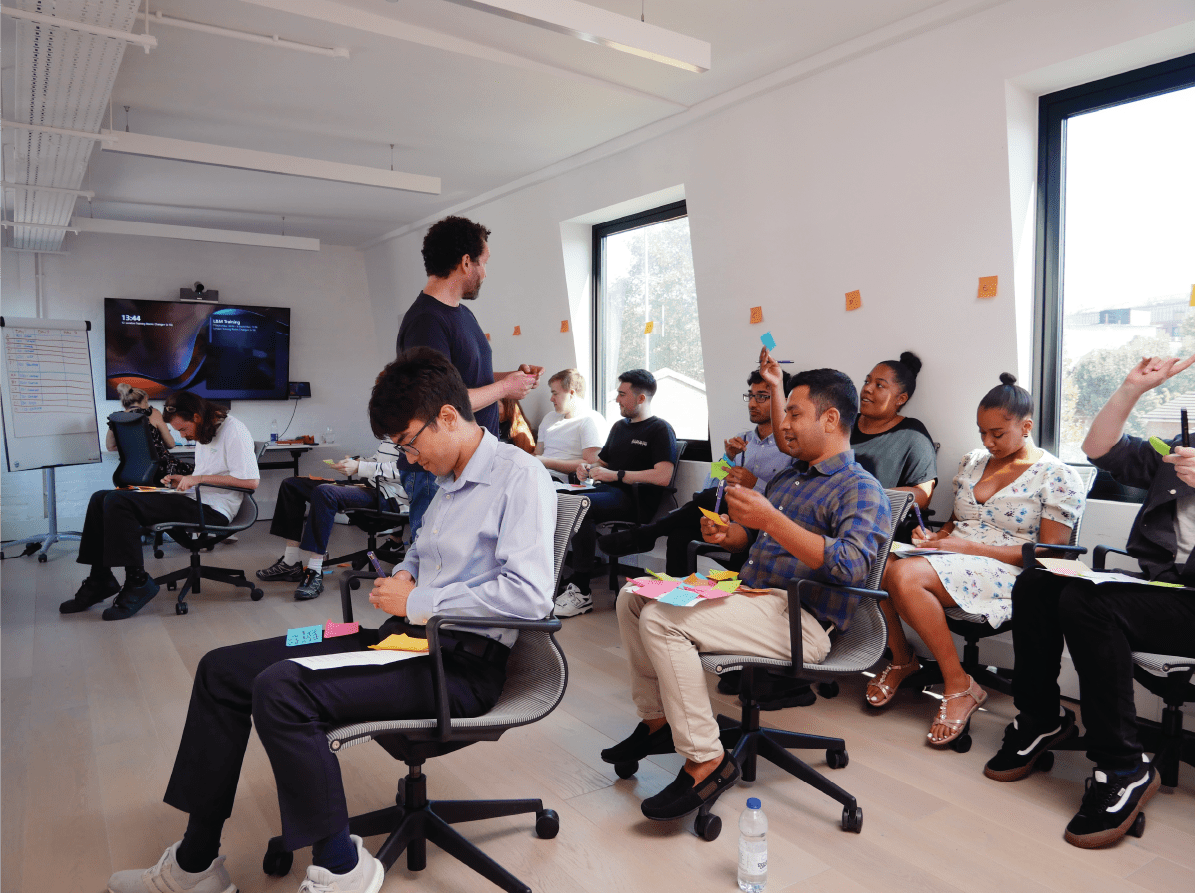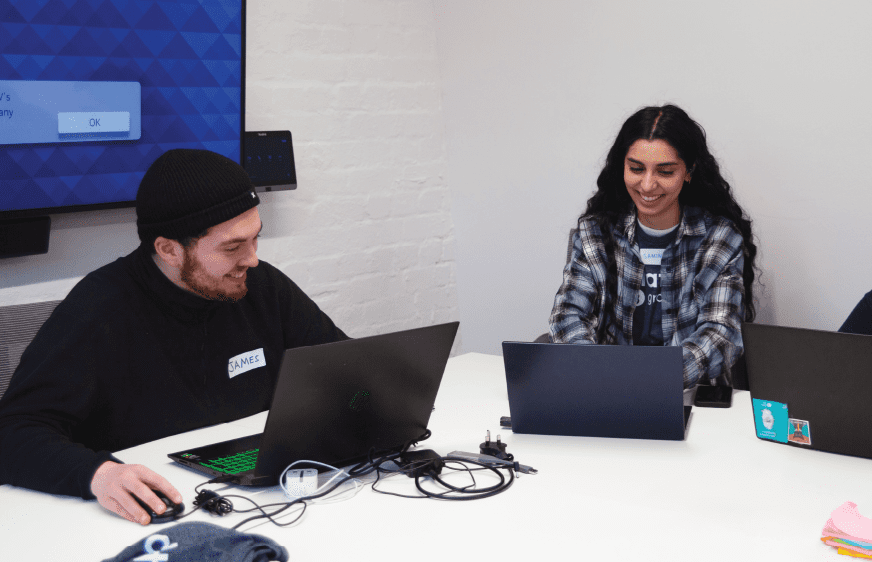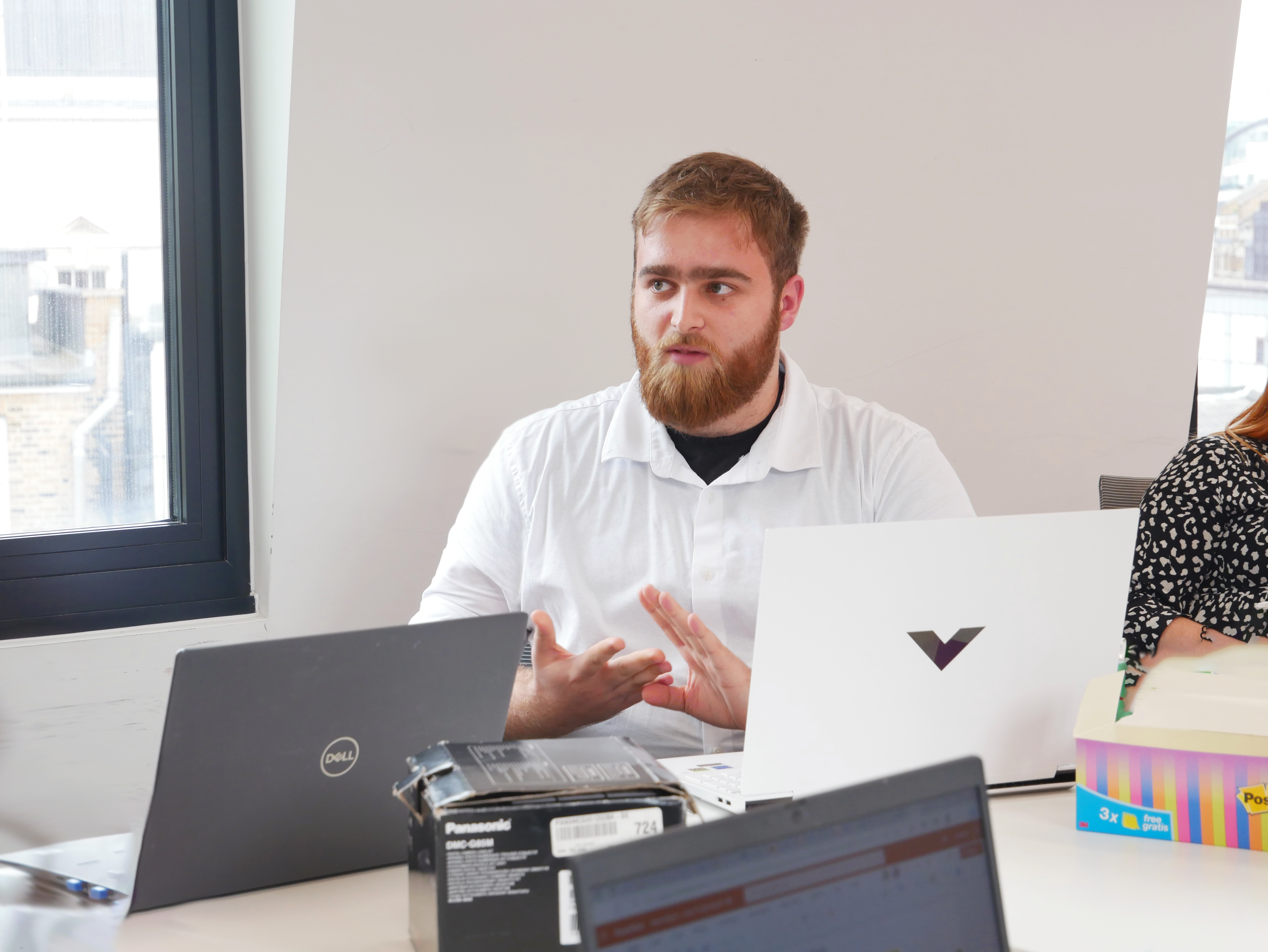
Why wellbeing at work has become more important during COVID19
Wellbeing at work has come into sharper focus since the pandemic, as more employers recognise the importance of mental health support.
2020 pushed us to innovate in ways we couldn’t have imagined. Much of the initial shift to remote working was focused on rolling out new technology and undergoing rapid digital transformation. But as well as finding new ways of working, employers have had to understand how they can support the wellbeing and mental health of their people – all whilst operating remotely.
From isolation to increased stress and anxiety, we’ve all felt the mental strain prompted by the pandemic. According to the Office for National Statistics (ONS), almost one in five adults are experiencing some form of depression during the coronavirus pandemic, compared to around 1 in 10 before the pandemic. In addition, the ONS also found a significant increase in anxiety at the beginning of lockdown with almost half (49.6%) of people reporting high anxiety.
Company culture
COVID-19 has put company culture to the test. Without the shared lunch breaks and face-to-face catchups afforded to us in the office, organisations have had to step-up their commitment to employee wellbeing. So, how do organisations promote a sense of connectedness and calm, in a global pandemic that’s beyond their control? An effective way to approach wellbeing has been to introduce wellbeing tools and support into employees’ daily routines, much the same way that digital collaboration tools have become the new norm. Take a look at some of the key wellbeing actions that employers have taken this year…
Transparent communication
To help promote a sense of togetherness whilst remote working, many organisations, including Grayce, have increased their internal communications and check-ins with line managers. Principal research fellow at the Institute for Employment Studies, Dan Lucy says: "The more contact that individuals have with their manager, the better they feel and more committed they are to their health."
Grayce’s increase in communications has seen Grayce Analysts receive additional support, including weekly check-in calls from our Leadership Team at the start of the pandemic, COVID-19 updates as needed, and weekly wellbeing communications.
These regular touchpoints combat feelings of loneliness and offer employees a safe space to speak out if they are struggling. Global Head of Human Resources at Schroders, Emma Holden reveals interaction with communications rose sevenfold when they "realised [their] employees were engaging more with voicemails or podcasts. People increasingly prefer to engage with voice rather than text."
Work-life balance
Without a commute to break up the day or coffee breaks to chat to colleagues, working days can begin to feel like one, long Zoom call. So, it’s important to establish clear divisions between your home and working life, as well as taking control of your calendar. Some organisations are promoting meeting-free days or daily breaks to encourage employees to get exercise during the daylight.
Socialising remotely
Whilst working from home during lockdown, 30% of employees reported feeling lonely and 26% missed socialising informally with colleagues, according to O2’s ‘The Flexible Future of Work’ report. It’s no surprise then that activities like casual video calls, virtual yoga and quizzes have become so popular.
We also rely more heavily on informal connectivity tools like WhatsApp or Slack to recreate the non-work-related conversation we’d have between meetings, along with sharing fun photos of things like crafts or cooking that we’ve been doing safely at home.Wellbeing Ambassadors
Alongside professional support, the attitudes and conversation around mental health within your organisation are really important. Lloyds Banking Group, for example, has 800 mental health advocates who offer weekly wellbeing activities.
Similarly, Grayce employees collaborated to create our Wellness at Work initiative. Grayce Consultant & Wellness at Work founder, Tessa Morgan says: "I wanted to set up this initiative because, from my own experience with bipolar disorder, I understand how difficult it can be to manage your mental health and wellbeing alongside your work. I want to promote open, honest conversation around mental health in the Grayce Community, along with creating and sharing useful, wellbeing resources so we can better help ourselves and each other."
Currently, we have over 15 Grayce Analysts who act as Wellness Ambassadors at our largest clients across financial services, pharmaceuticals, FinTech, insurance and legal services. Our Wellness Ambassadors act as trusted, wellbeing touchpoints for Grayce Analysts on their client site, signposting them to further support. Wellness Ambassador, Alex Field says: “I’m keen to open a dialogue about how poor mental health affects us all differently and the steps that we can all follow to take better care of ourselves. Together at Grayce, we can foster a support network to ensure we’re all succeeding together.”
Professional wellbeing guidance
It’s important to recognise the distinction between employees’ seeking additional support at work or needing professional help. Like many organisations, Grayce has an Employee Assistance Programme that provides 24/7 access to guidance around health and wellbeing, including counselling, CBT, critical incident management and trauma support.
Alongside this, company-wide webinars are ideal for bringing everyone together to strengthen employees’ wellbeing toolkit. This year, Grayce has hosted several wellbeing webinars including one focused on building resilience and being kind to yourself with coach, Mandy Sinclair, as well as a mindfulness session with Dialectical Behavioural Therapist, Daniella Di Rosa.
If there was one positive outcome of 2020, it’s the cultural sea change for improved wellbeing and mental health support in the workplace. More organisations are now taking care of their employees as people, not just professionals.
A recent PwC survey found that 72% of employers reported that they would expand benefits targeted at employees' wellbeing at work. The link between our personal lives, mental health and our ability to do well at work has never been clearer. The post COVID-19 working world seems set to be one of increased communication, flexibility and kindness, with wellbeing at the heart of the employee experience.




